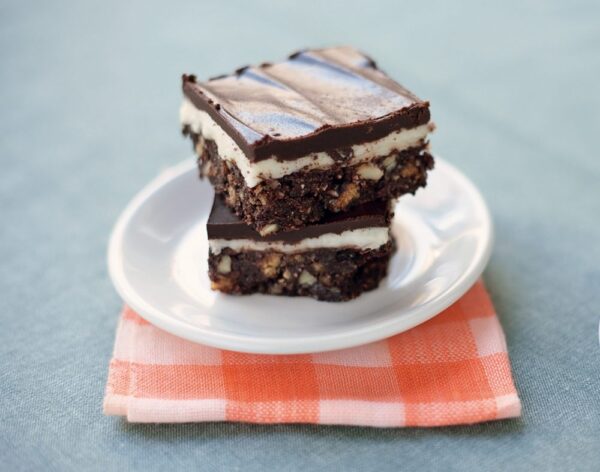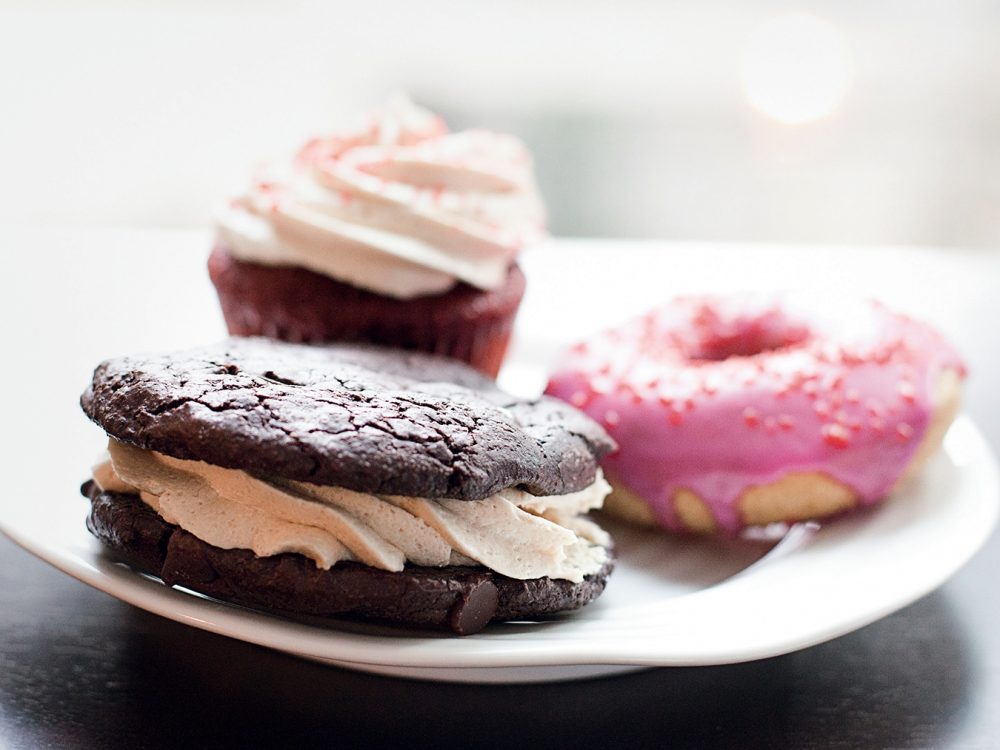Baking: an exacting craft requiring precision and patience. It’s viewed as inordinately frustrating by some, yet hypnotic and meditative by others. Throw the limitations of gluten-free ingredients into the mix, and the alchemic balance changes completely, creating an entirely new set of challenges: how to replicate the crumb and the rise of regular gluten-based products; which of the myriad gluten-free flours to use; how to circumvent issues with dryness and flavour. Three of Vancouver’s gluten-free bakers discuss their respective motivations and methods of addressing the growing demand for this once-underserved niche market.
Arlene Kennedy of mygoodness! Gluten & Wheat-free Kitchen did an about-face on her approach to cooking and baking when her daughter was diagnosed with celiac disease in her early thirties. “Just tasting a lot of what my daughter had to eat—which was horrible—made me realize that there has to be a better way to do this stuff. As things evolved, it became my mission to develop nutritious, delicious, and affordable product for people with celiac disease, gluten intolerance, and wheat allergies.” A season of test marketing at farmers’ markets prompted her choice of almond flour as a staple ingredient. “I realized people loved what I was baking because it stood out from the usual white-rice-based products. Almond flour consistently eliminates the dryness that you find in most gluten-free products, and it significantly ups the nutritional value.” Since opening in May 2011, Kennedy’s queijos, carrot cake and baguettes have been top sellers.
Paul Briggs of Edible Flours quickly recognized a gap in the local marketplace upon relocating from New York with his wife Alli about three years ago. “I have quite a sweet tooth and, being vegan, found that there was nothing in Vancouver really in terms of vegan or gluten-free bakeries.” Ironically, Briggs was diagnosed as celiac only after embarking on his new adventures in gluten-free baking, finally resolving a mysterious stomach ailment that had plagued him since childhood. Alli’s macrobiotics studies at the Kushi Institute in Becket, Massachusetts, forms the basis for their approach. “I know it’s often an oxymoron, but we wanted to create something as natural and healthy as possible that still tastes luxurious and decadent. Zero transfat, soy free, sugar free—we hit all those points but still make it possible for our customers to enjoy a treat.” Banana bread is, hands down, Edible Flours’ most popular product, but the crumb on their cake-style doughnuts is also remarkable. “We get a lot of people in who don’t realize that we’re a vegan, gluten-free bakery. That’s absolutely fantastic considering we wanted to appeal to everyone and not just people who have a particular lifestyle choice or intolerance.”

Nanaimo bars from the Gluten Free Epicurean. Photo: Grant Harder.
Cooking always offered comfort for Delainy Mackie of the Gluten Free Epicurean, and she turned to baking as solace when her mother and her aunt both died of cancer within six months of one another. She’d been living gluten-free since her celiac diagnosis at age 19, and both women were pivotal in teaching her the baking basics they’d acquired to accommodate their own dietary restrictions. Mackie stuck with one cookbook, The Gluten Free Gourmet, as the springboard for her exploration, and it took about five years of trial and error to reach the point where she was satisfied with her product. “I just like to keep it simple. My focus is giving things to gluten-intolerant people that they’ve really been missing.” Her product line reads like a love letter to gluten-intolerant dessert devotees. From a taste and texture standpoint, Mackie’s apple fritters, s’mores bars, and matcha shortbread cookies are so extraordinarily indistinguishable from their gluten-based counterparts, you won’t even know what’s missing. In fact, you won’t even miss what you know.
UPDATE, Feb. 22, 2018: mygoodness! Gluten & Wheat-free Kitchen is now closed.









